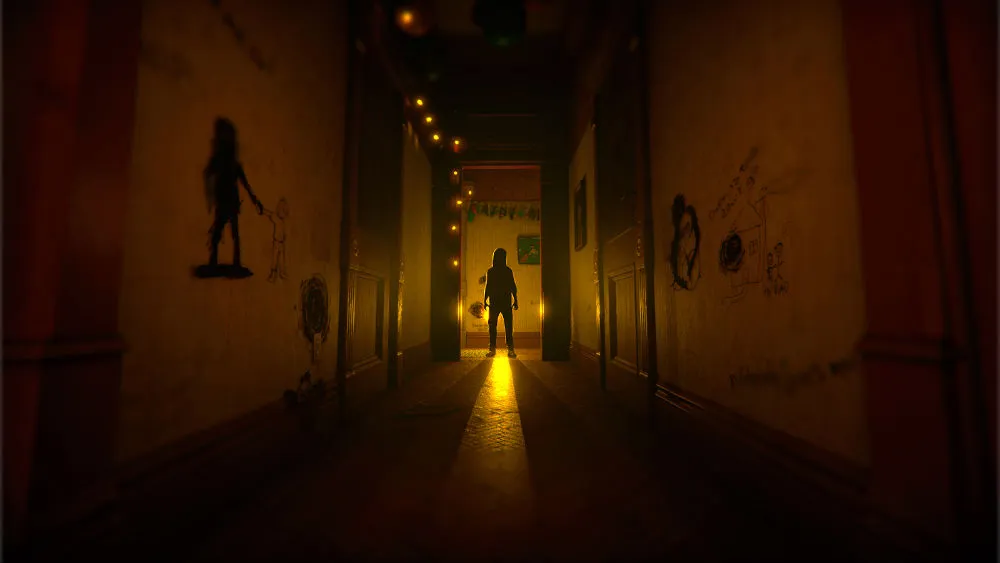Transference is shaping up to be a powerful and haunting psychological trip from Ubisoft Montreal and Spectrevision.
I don’t know how Games Editor David Jagneaux played through all of Resident Evil 7 with a VR headset on, but accomplishing that terrifying task and then describing Transference as an “intense and unsettling thriller” planted seeds of fear back at E3 2017. This year, those seeds sprouted. David needed to walk over Nazis in a giant mech at the same time as a panel for Transference. So it fell to me to attend the panel, experience Transference and put a few questions in front of Ubisoft’s Game Director Benoit Richer, Spectrevision’s Elijah Wood and others involved in its creation.
What Is Transference?
Transference is coming to PS4, Xbox One and PC as well as Rift, Vive and PSVR this fall. The official site offers the following description:
Enter a corrupted digital simulation created by a brilliant but troubled scientist, Raymond Hayes. Transference is a world built from the collective brian data of Raymond, his wife Katherine and their son Benjamin. Recover a fragmented family as you shift back and forth between each individual’s perspective and piece together the mystery of their lives.
The basic framework for “an escape room set in a deranged mind” involves entering various rooms, looking for objects and hitting the light switch to see a room from a different perspective. I used analog sticks to walk around a creepy house, hand controls to pick up objects I found and I was also faced with a basic environmental puzzle which could be solved by switching back and forth between these perspectives.
At various points, Transference draws out empathy with the cries of a child and piques curiosity as reality itself flickers to reveal objects hidden in another version of the room. It also commands fear with dark corners in tight hallways and shadowy figures ready to rush you at any moment. The sound design alone is almost overwhelming. I tuned a radio at one point to a station and heard a child fearfully ask for a parent to tell them whether they are experiencing reality. As a father who works in VR and watches far too much science fiction, I found this moment particularly distressing.
The narrative in Transference is awfully close to a few episodes of Black Mirror, except the power of VR is used to make the story feel more pressing and intimate. In less than 20 minutes with Transference I felt two chills run down my neck. Different emotions were in competition to drive my actions, and though I found the mystery of this family intriguing enough to want to unlock the whole story when it releases late this year — I’m not entirely sure whether I will want to finish the rest of this story inside or outside VR. It might be too much for me. The game’s director, Richer, said in an interview he believes it is easier to connect with the characters in the story when you are face-to-face with them in VR.
“VR is inherently more experiential and immersive so I think it’s going to ramp up every aspect of the game, but I don’t know that the emotional resonance is lost when you play it on traditional platforms,” Wood said.
What I saw was just a small slice of the game so we’ll have to take a deeper dive into the experience when it launches. In the meantime, check out this Q&A that sheds some light on some of the inspirations for Transference.


























